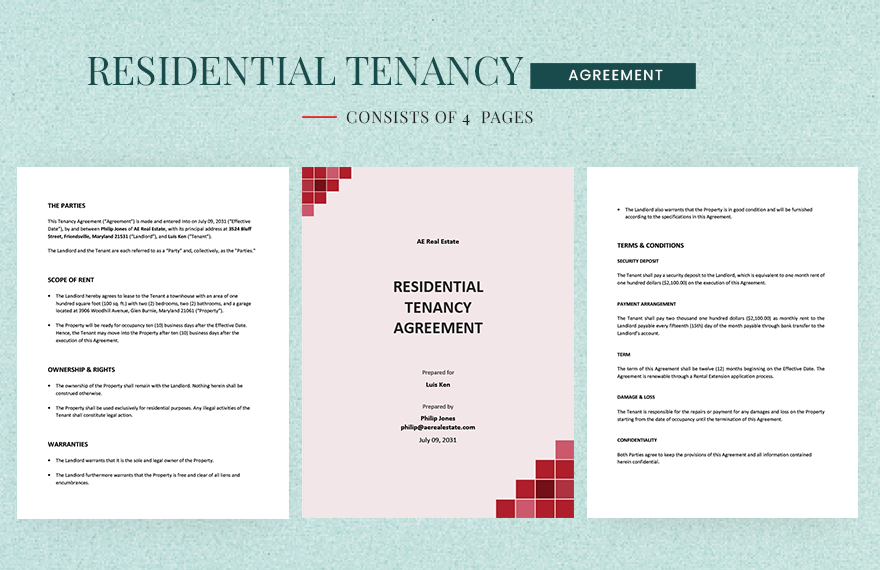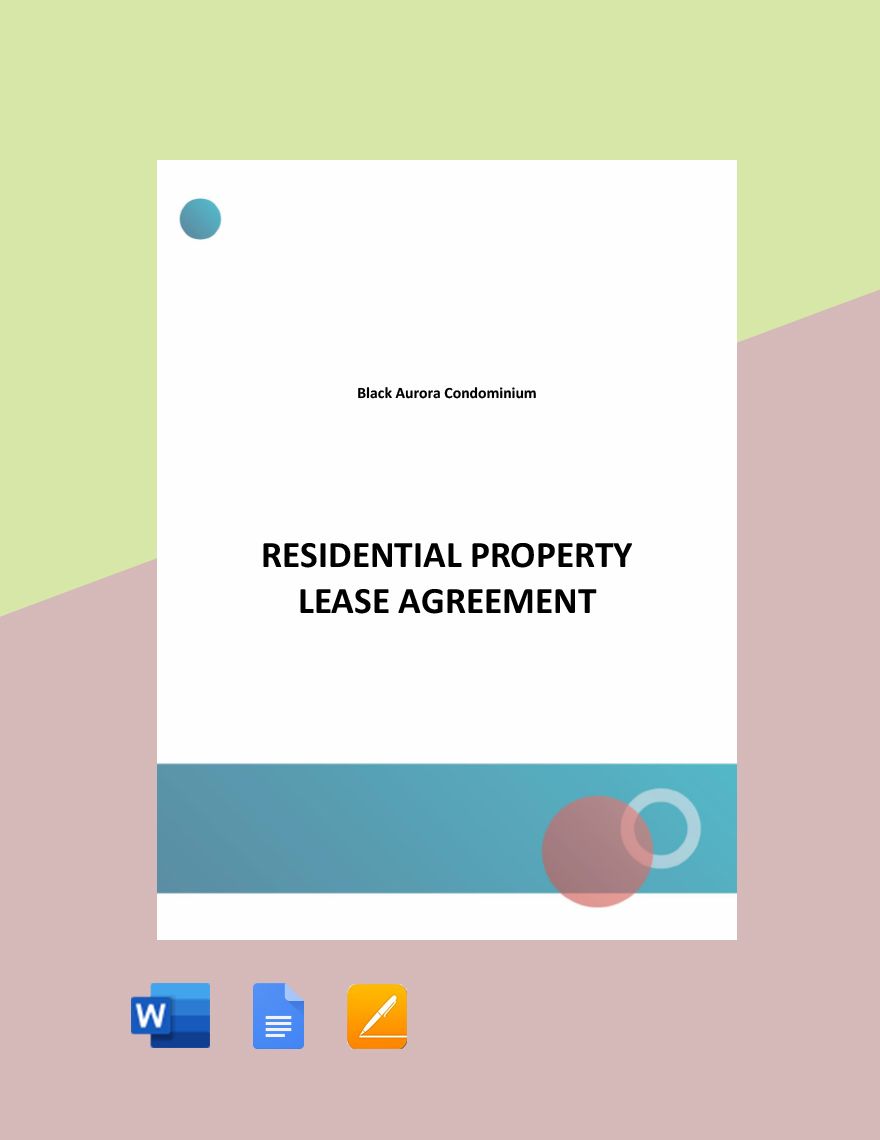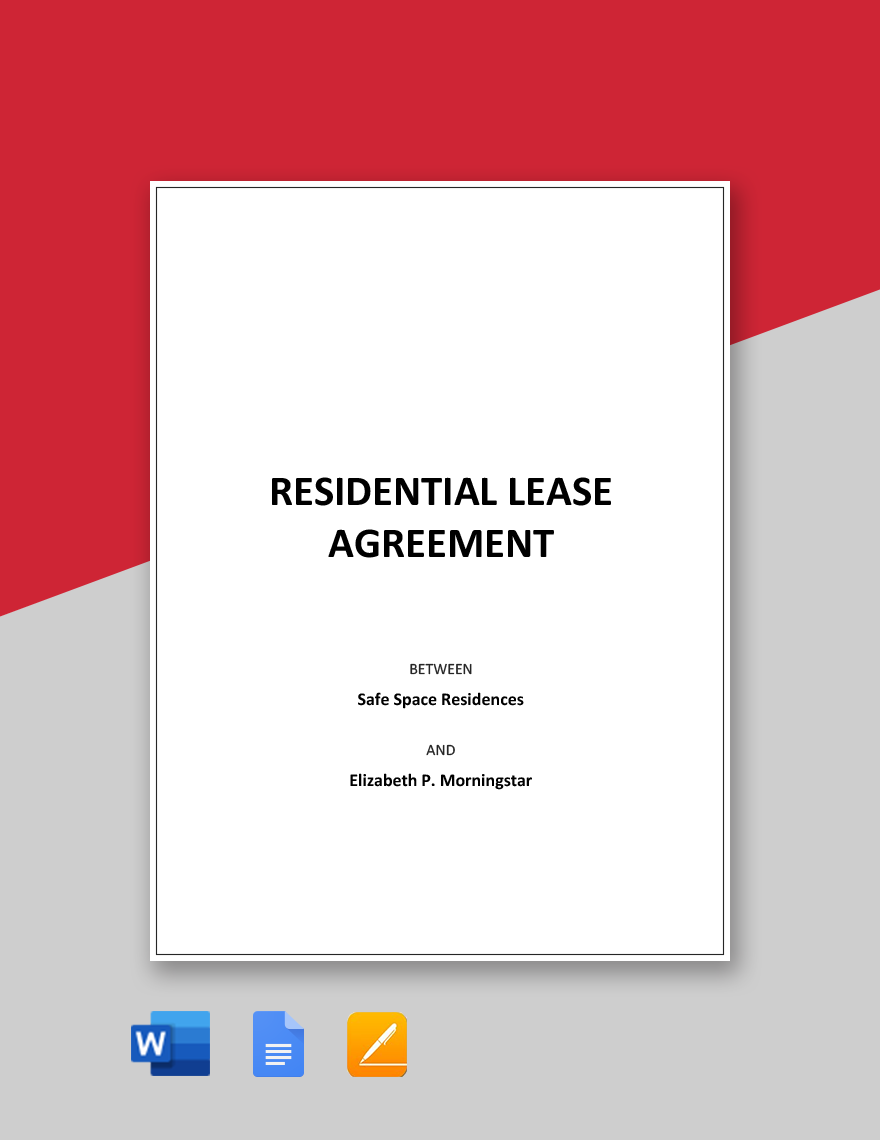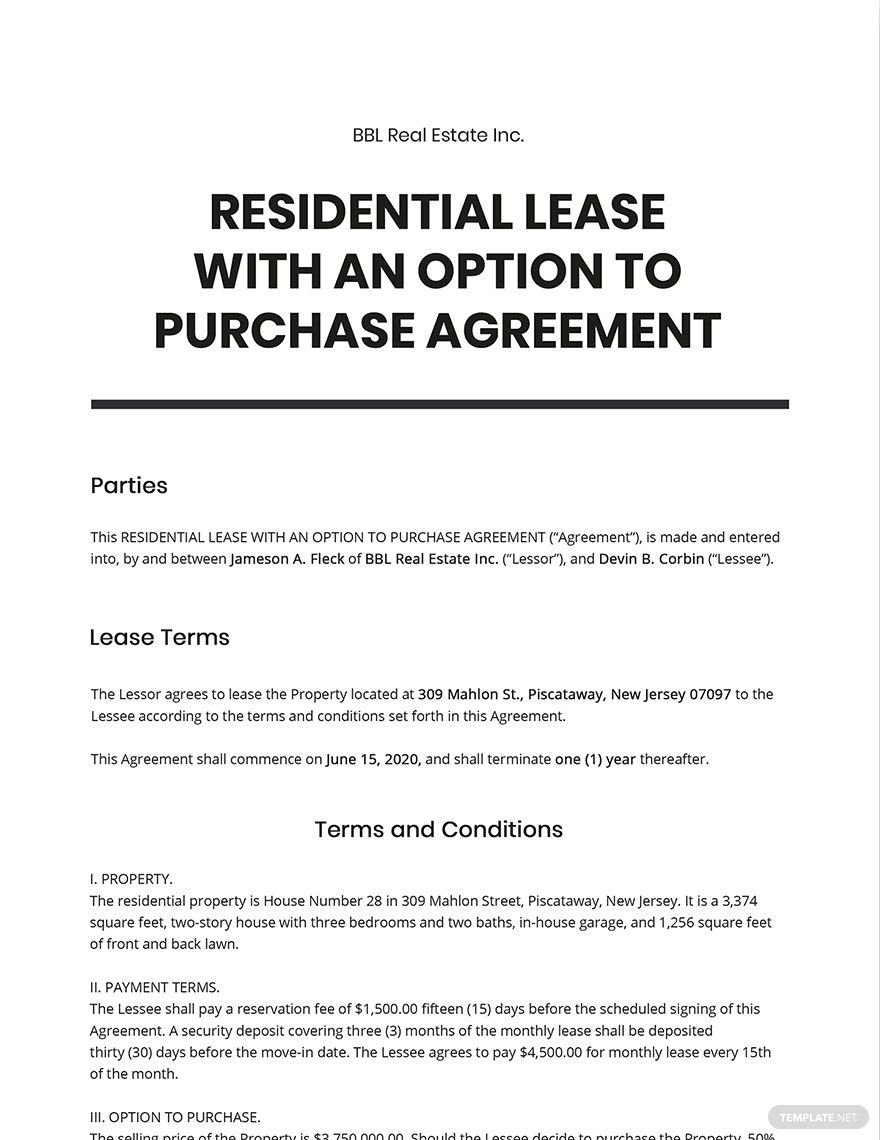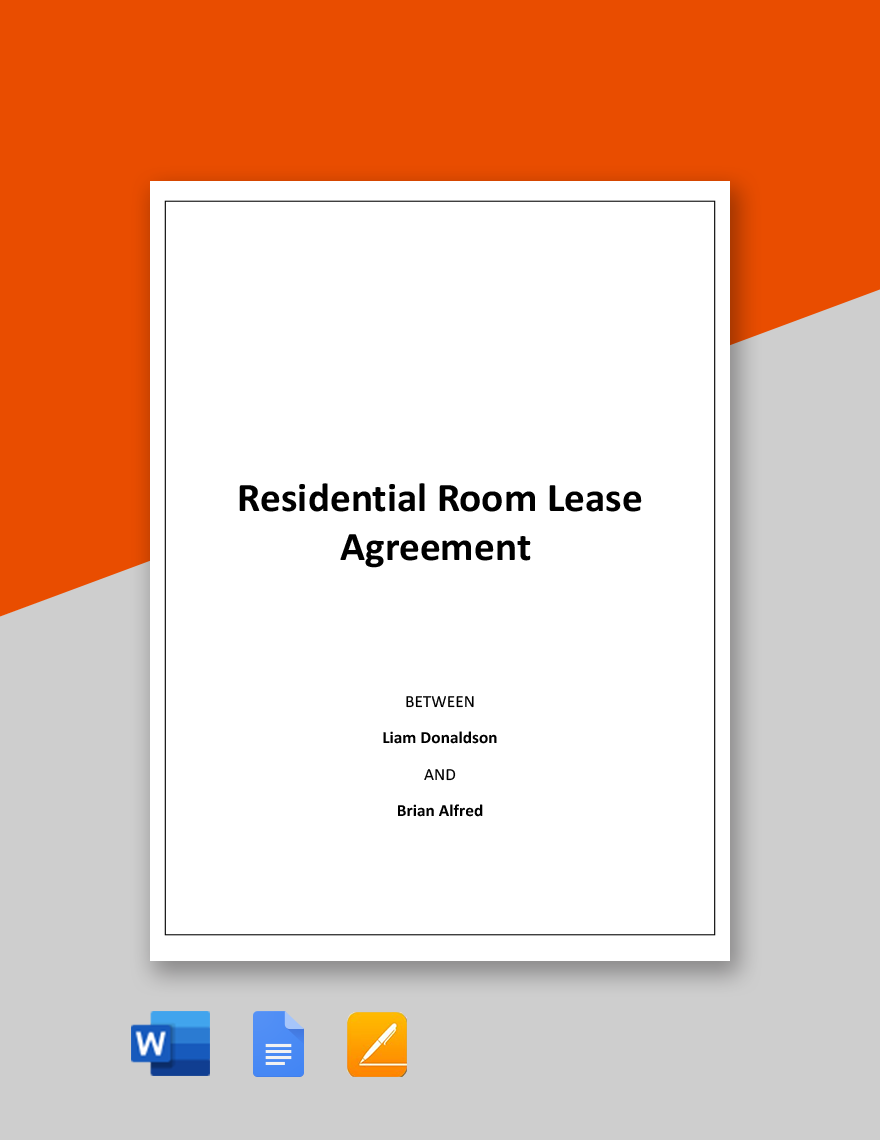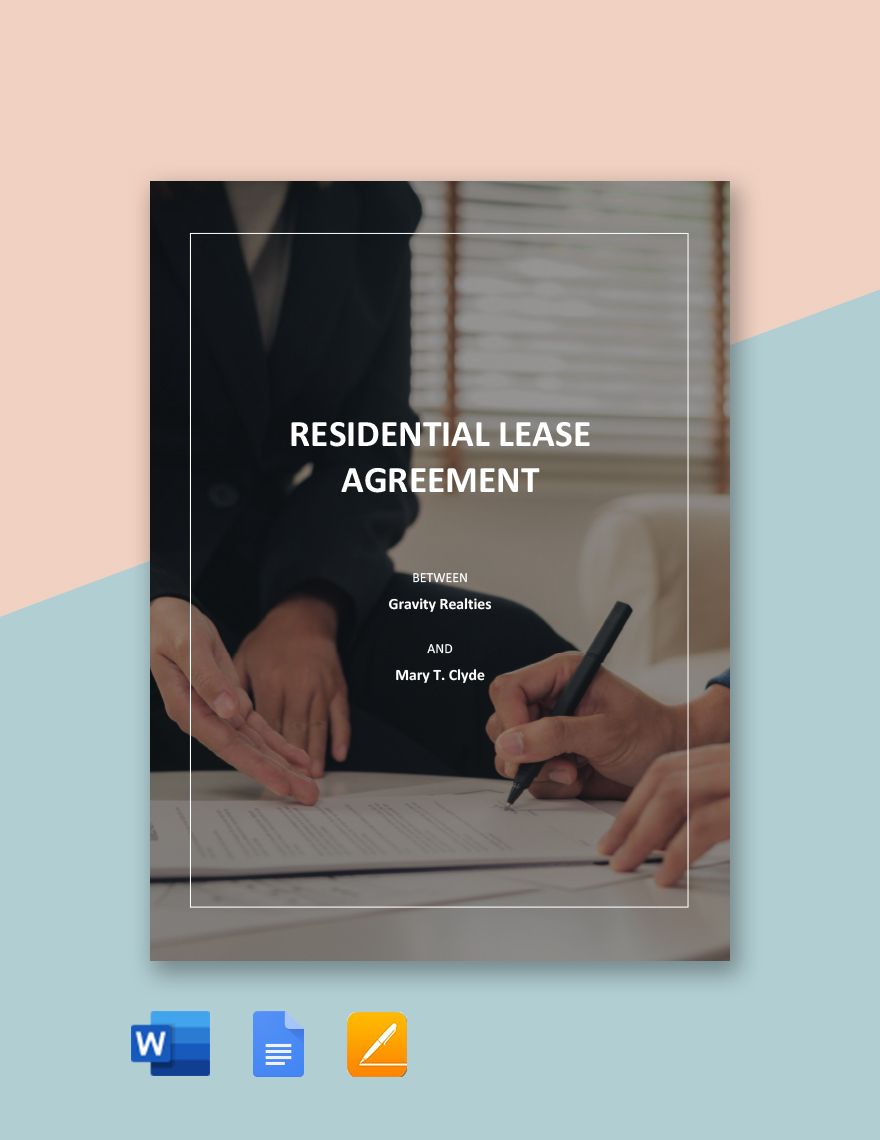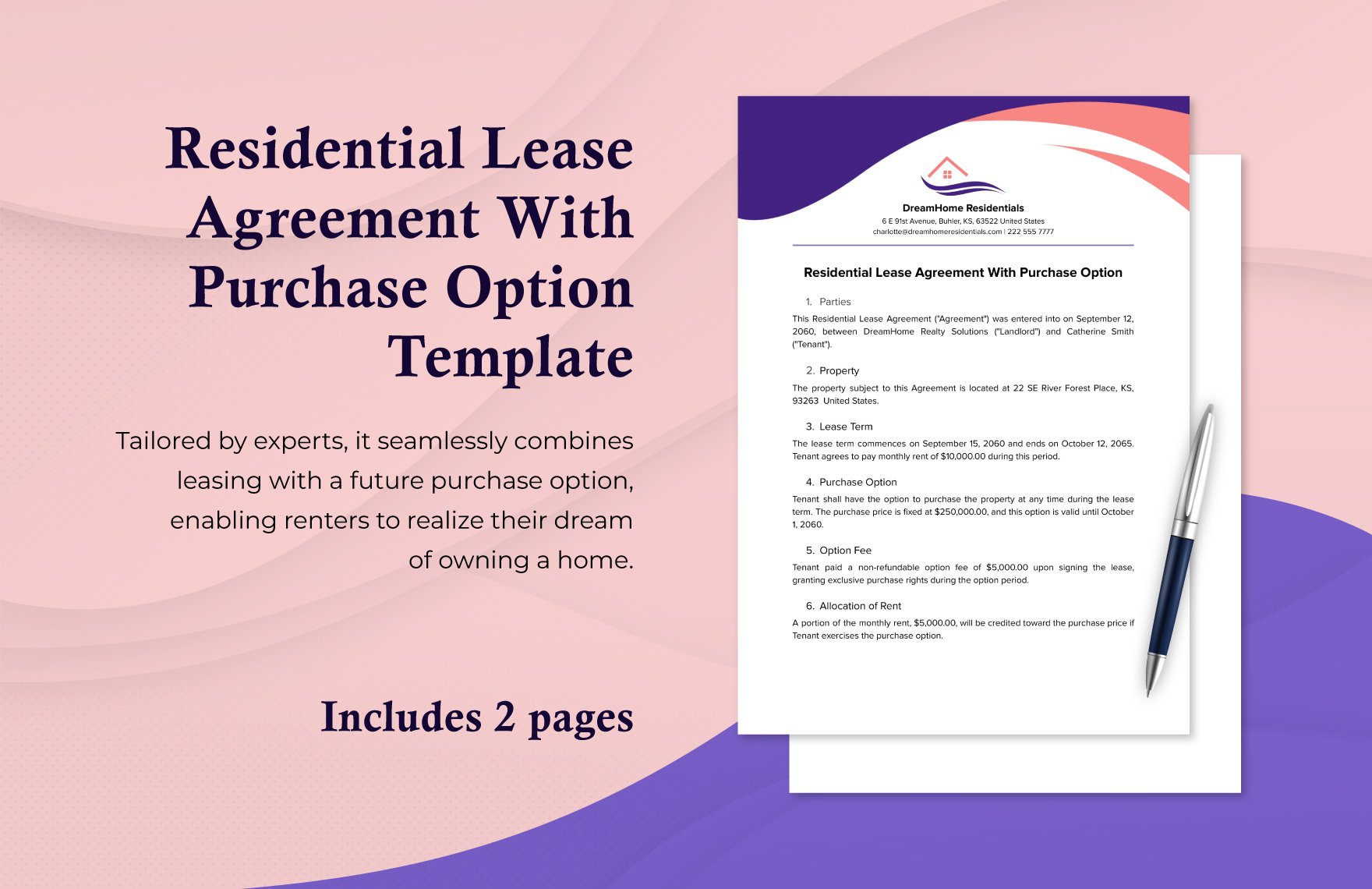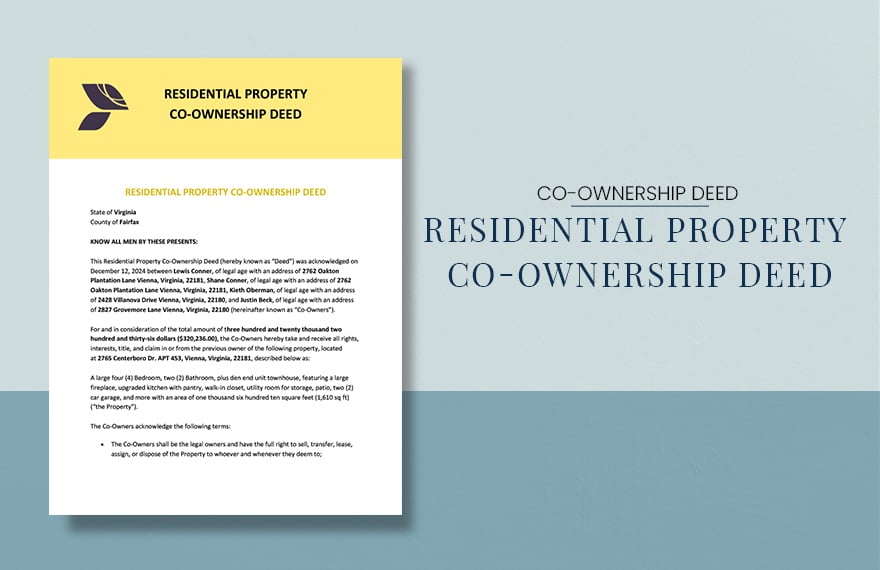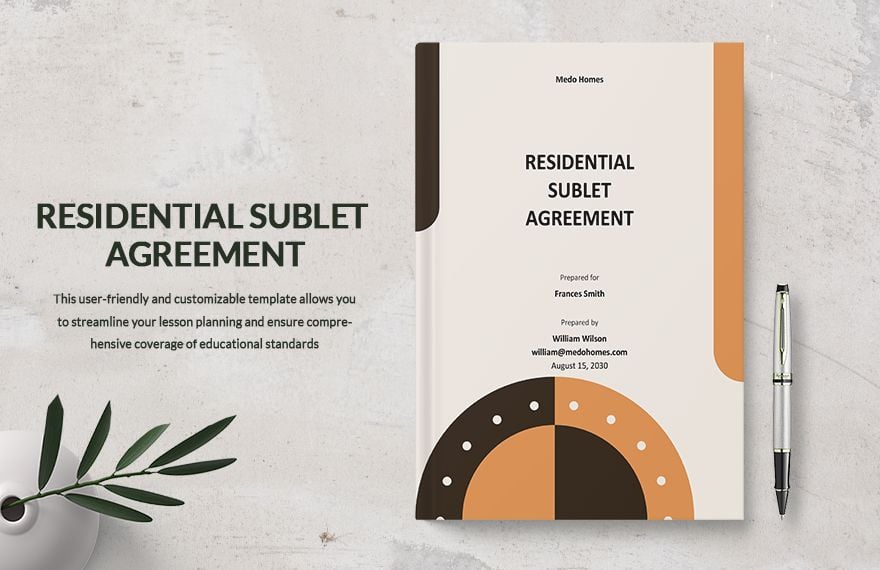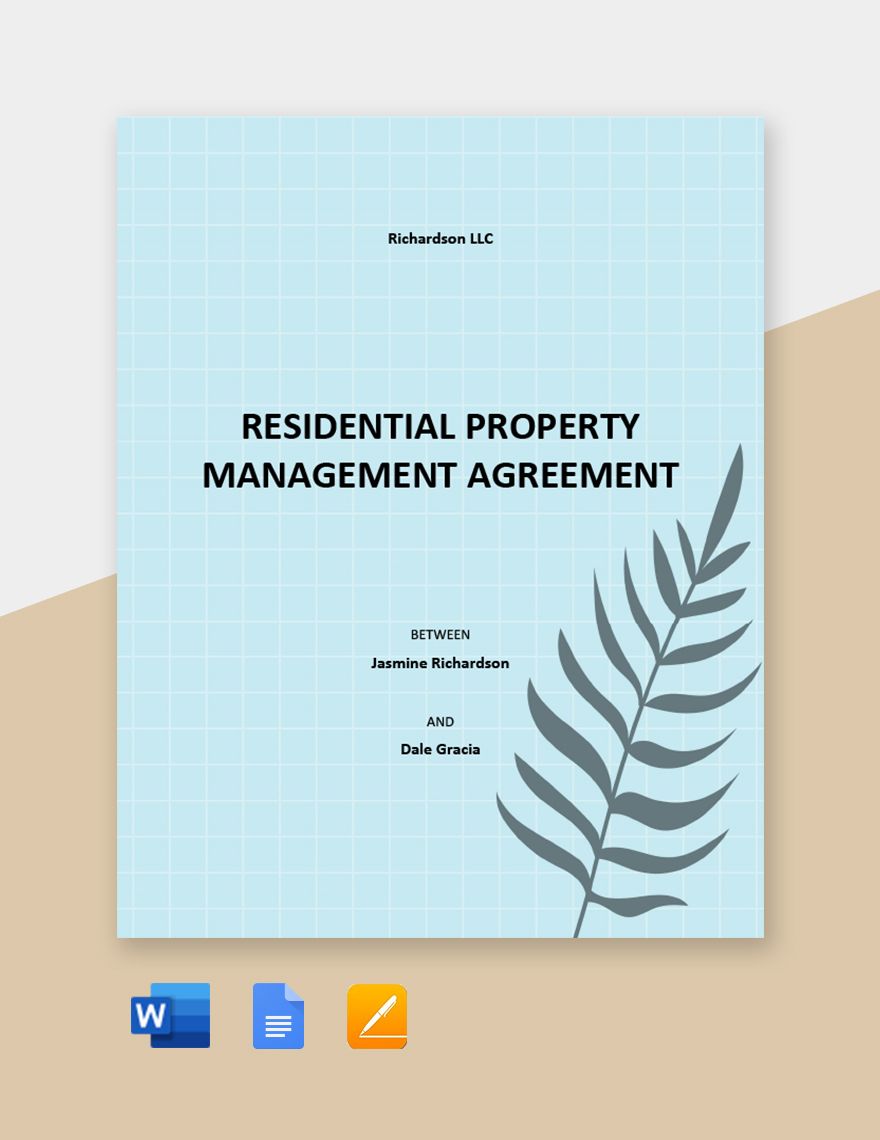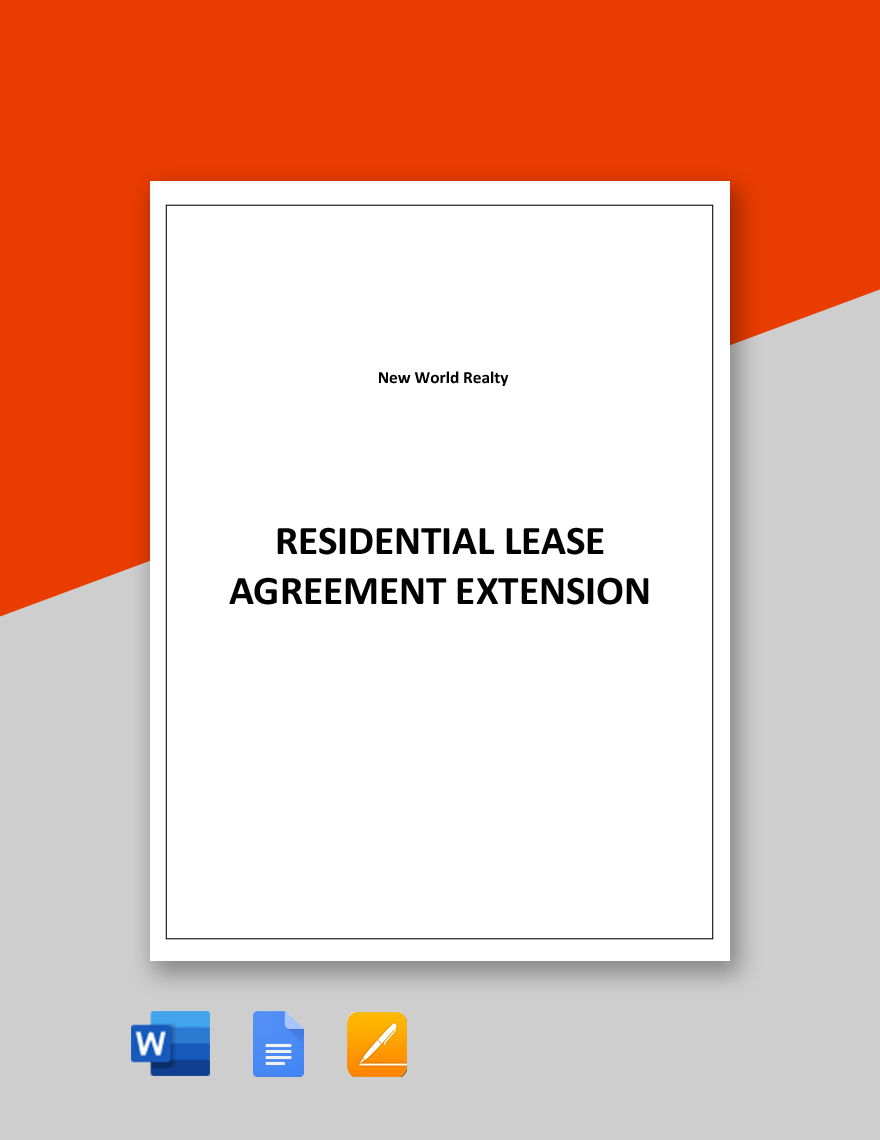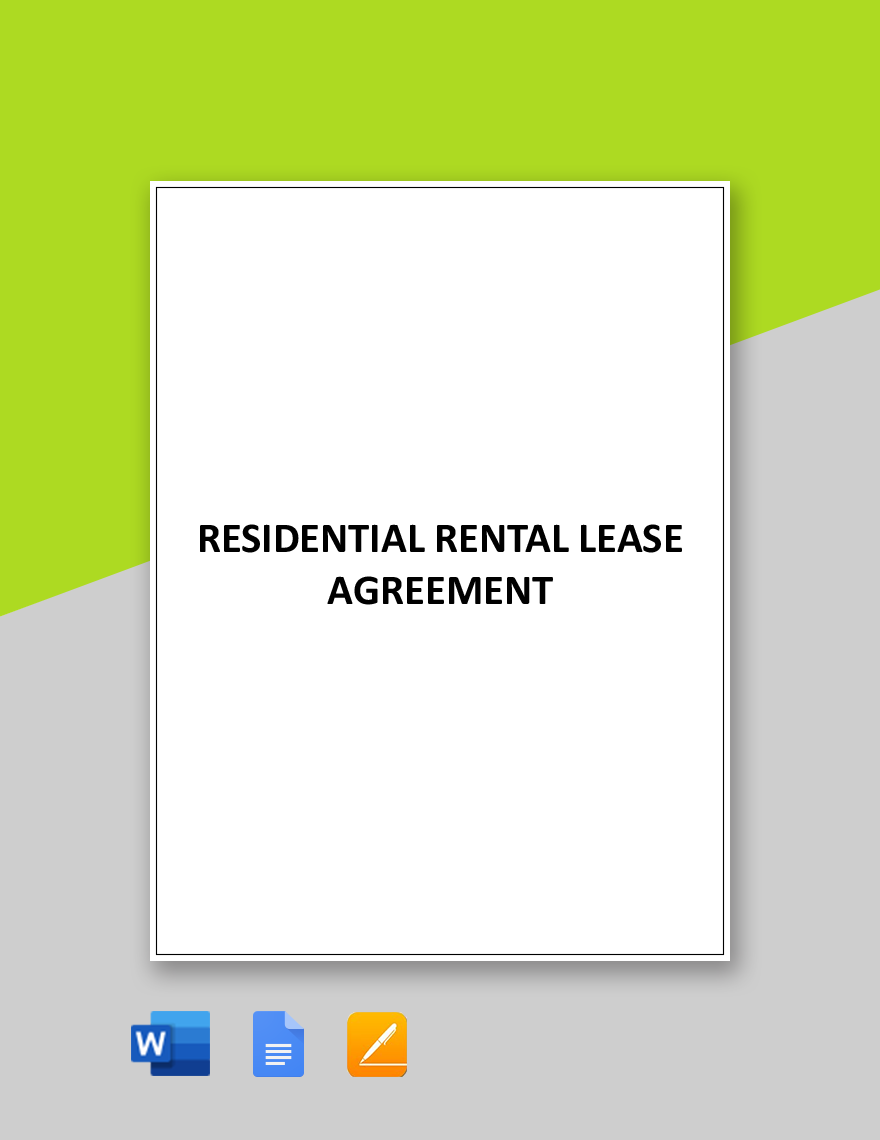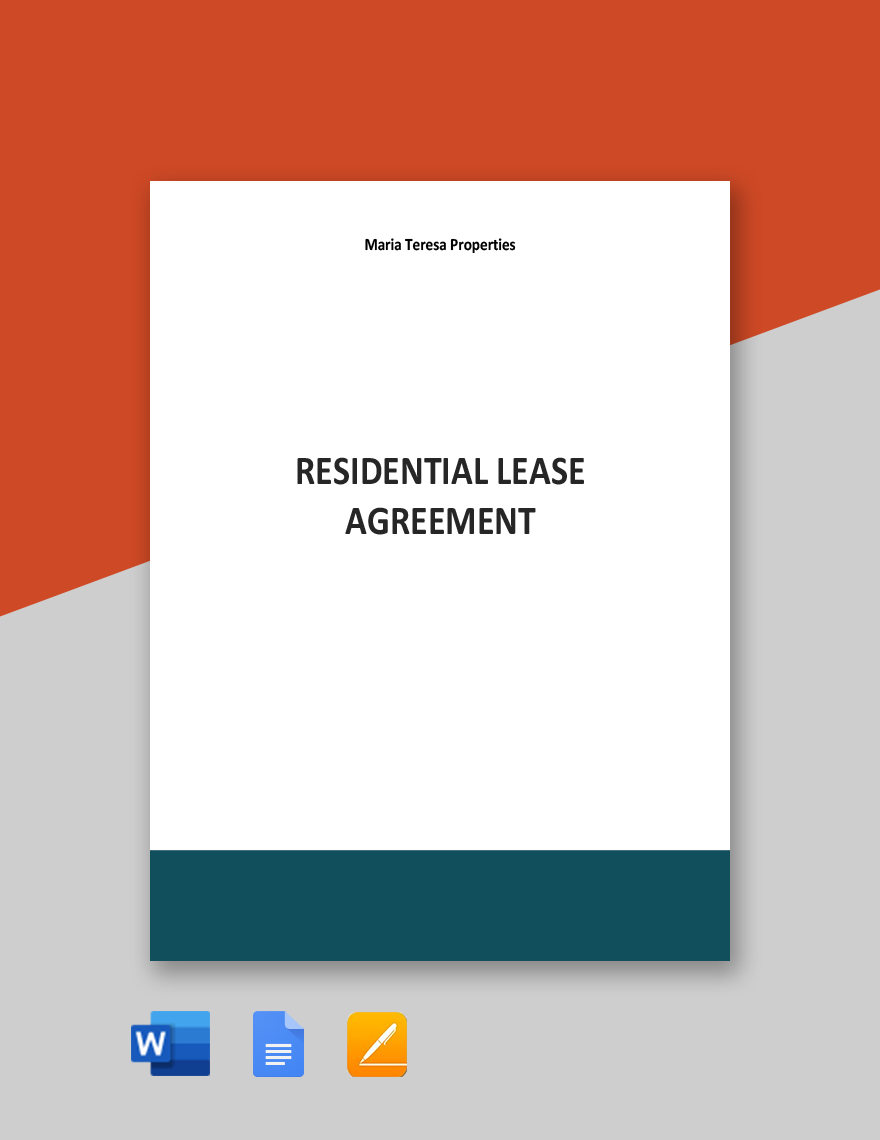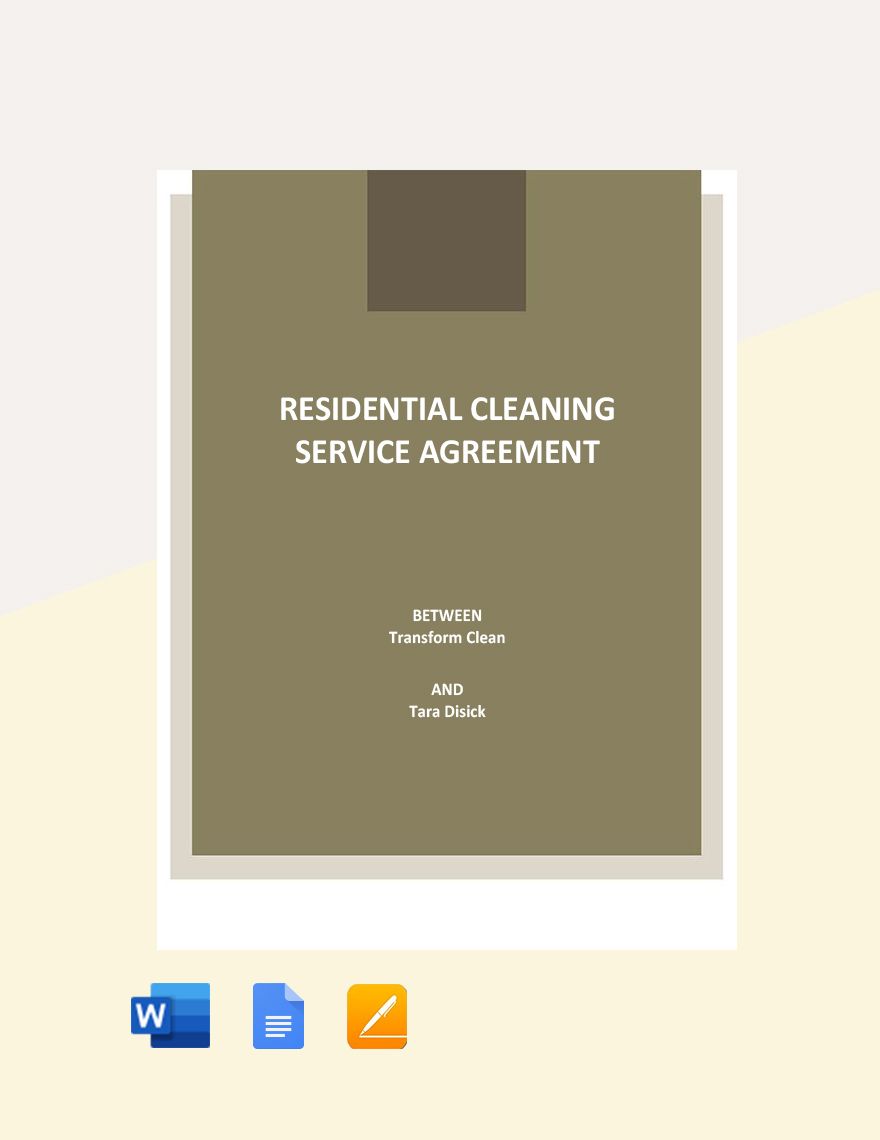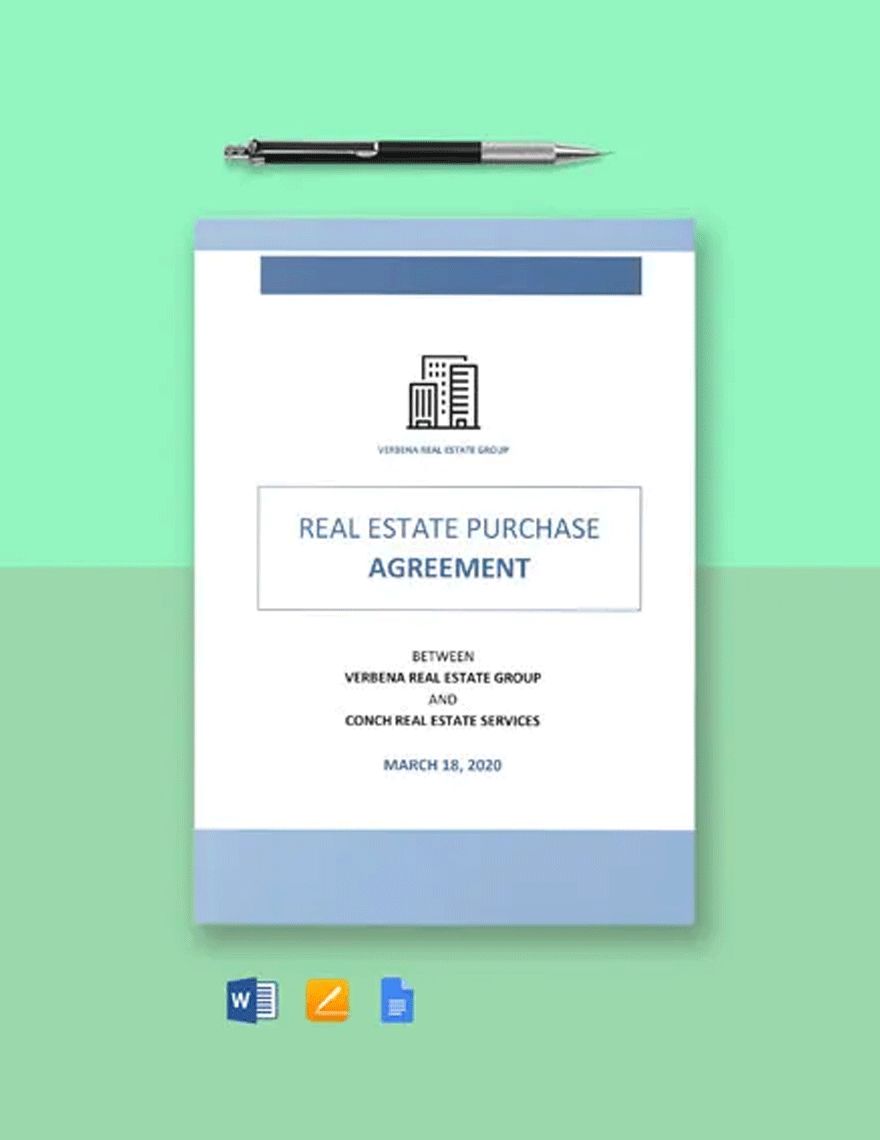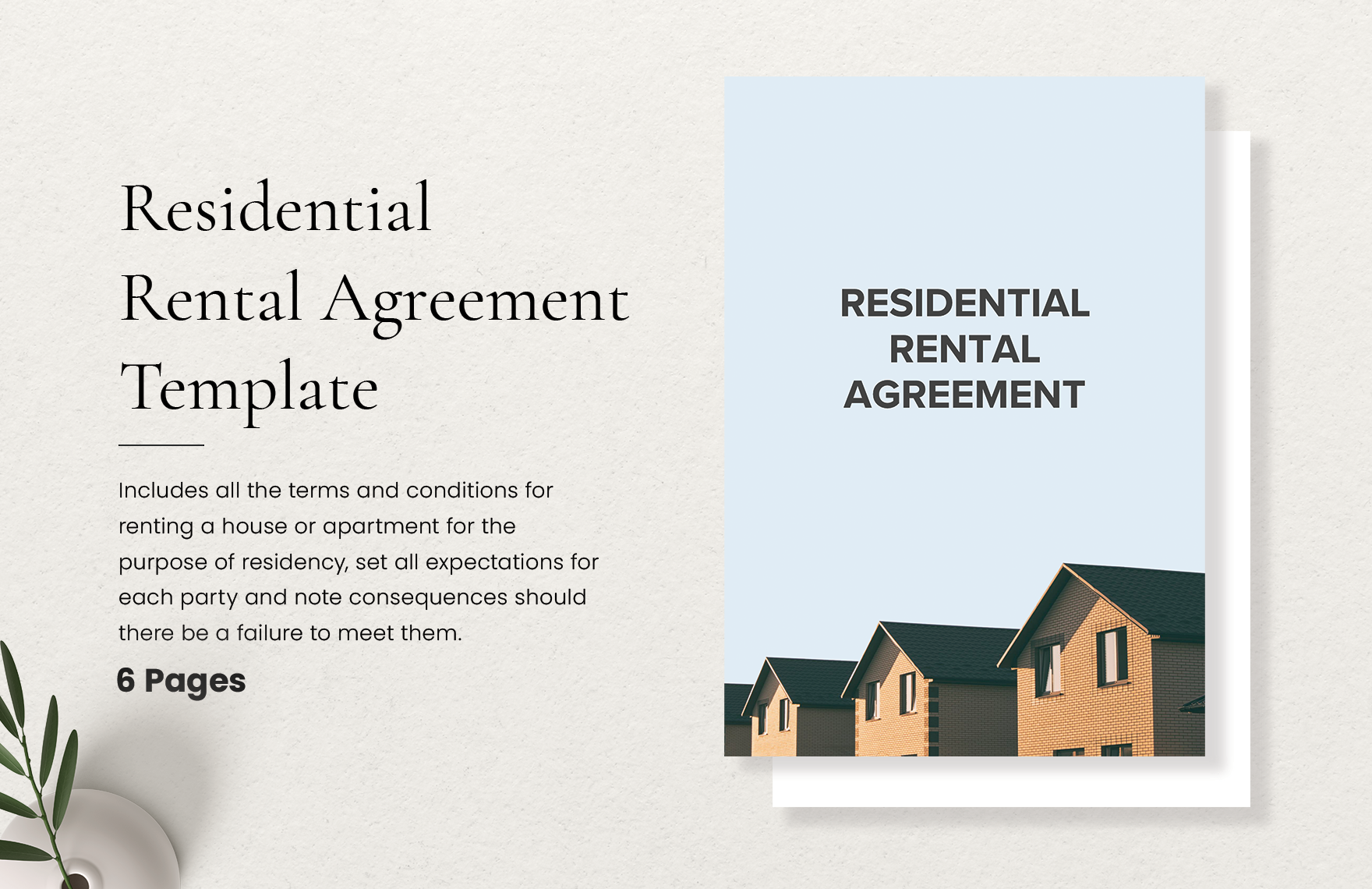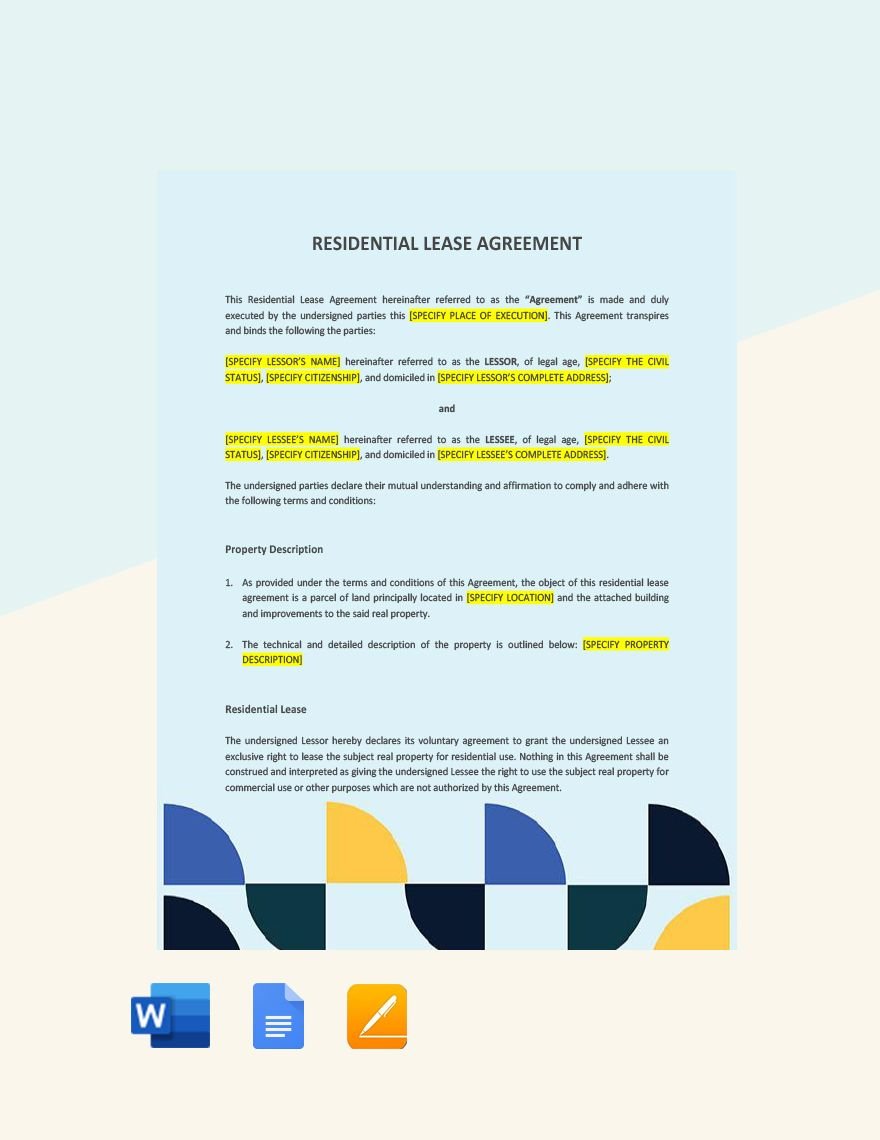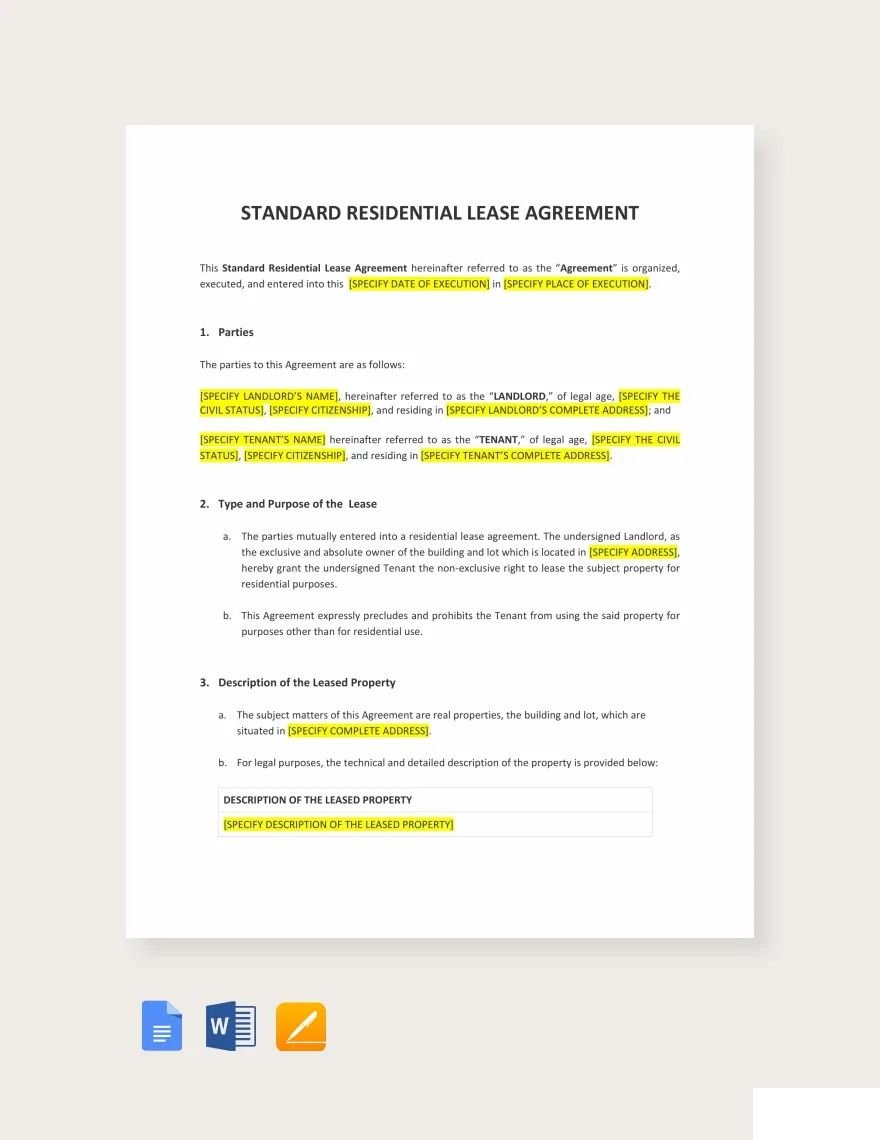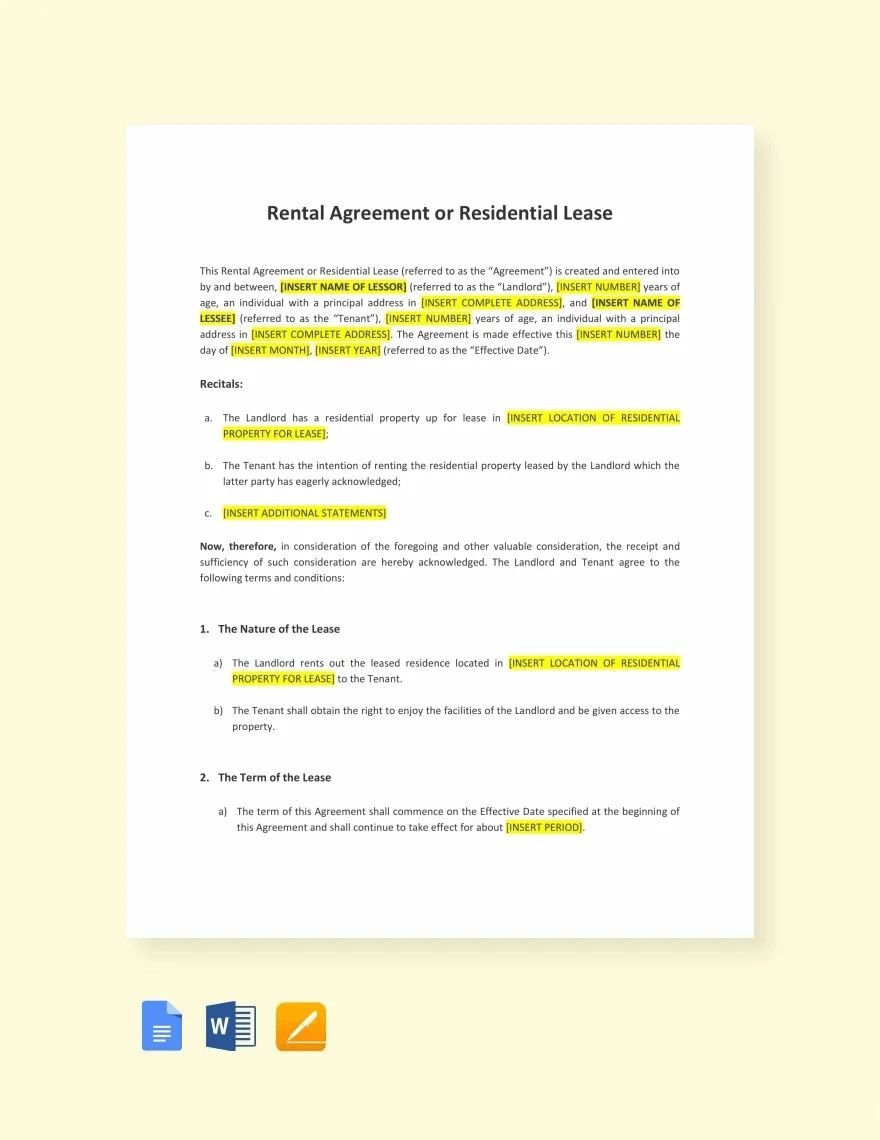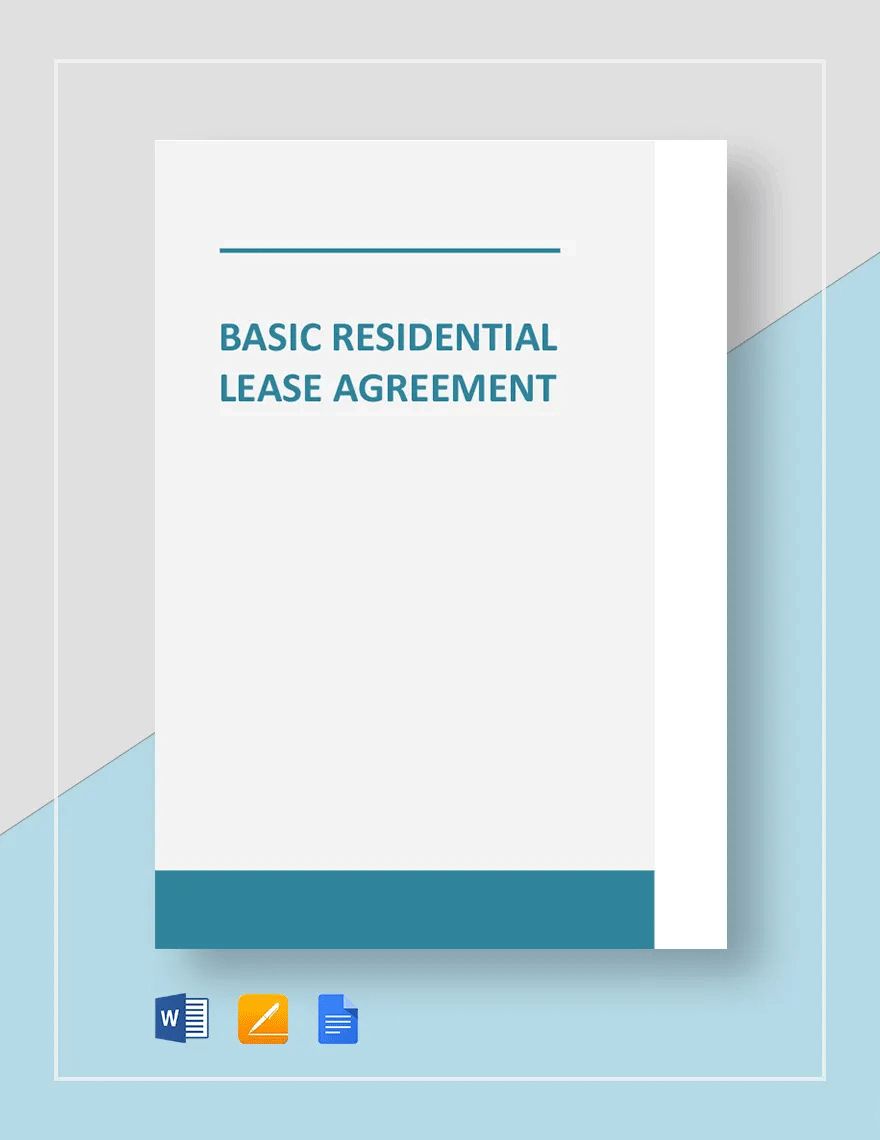Secure a legal document for your tenants to know the basics of the residential property they plan to lease with the use of a residential agreement. Clearly define to them the terms and conditions when renting the property with Template.net residential agreement templates. Our templates are professionally written to give you ready-made, detailed, and formal residential agreement. These templates are fillable and easily editable even for beginners. Save time and quickly apply minor changes in our 100% customizable templates through Google Docs, MS Word, and Apple Pages. Get your hands on our professional, premium, and printable residential agreement templates now!
What is a Residential Agreement?
A residential agreement or tenancy agreement is a legally binding contract that gives tenants the right to live in a property for rent or lease and gives the landlord to receive payments for rent. This agreement will benefit both the landlord and tenants by reducing problems and disputes that both parties might encounter in the future. This residential agreement will ensure that both parties will abide by what is agreed upon. It sets each party's expectations and lists the consequence of failing to fulfill the terms and conditions. The basic and most popular type of residential agreement is the standard residential lease. The residential agreement form is called by various names and can cover different types of leases such as apartment lease, house residential lease, condo rental lease, and room rental lease.
How to Write a Residential Agreement?
Any agreement should always be in writing and not a verbal agreement, especially when it involves a piece of property. It is also important that the issued residential agreement up to date and legally compliant. Providing your tenants a residential agreement shows that you care and you take your positions as a landlord seriously. Also, without a written residential agreement, you will have the difficulty of evicting a tenant. Hence, if you do not want to purchase a residential template then it is best for you to write your own residential agreement. Here are the important things that your residential agreement should cover.
1. State Premise
As a tenant, he or she will want to know what they are leasing. The residential leasing contract should state the full address of the property and the description of the building or house. It should also list any non-fixed items such as the refrigerator, oven, dishwasher, bed, and water-filtration system if it is a fully-furnished one. Doing this will protect the landlord from appliances requiring a repair once the tenant moves out. If the property is situated in a complex with similar units then the floor plan should be attached together with the agreement.
2. Identify Landlord and Tenant
Both parties are identified as tenants and landlords on the residential agreement, however, their full names need to be identified. Along with their contact numbers and addresses are noted on the basic agreement. If the tenants are a family then only name the parents and if the tenant has a roommate, then both their names are written so they share the responsibilities.
3. Note Payment Schedule and Amount of rent
The residential agreement should entail the amount of the rent and the due date. Commonly, rent is paid on a monthly basis. In paying the rent, there's also what they call the grace period. If a tenant is unable to pay on the due date, he or she is given a few day's allowance to pay the rent. The grace period can vary from 5 to 15 days when paying the rent.
4. List Terms and Conditions
Are tenants allowed to keep pets? If you are the landlord, ask yourself questions like this. Clear boundaries by defining the residential lease terms to your tenants in an organized and professional manner.
5. Duration of the Lease
It is important to identify the duration of the lease. Will it be short term or long term? Lease durations could be a month-to-month or annual length of time.
Lastly, do not forget to affix signatures of the landlord and the tenant to make the contract a legally binding one.
